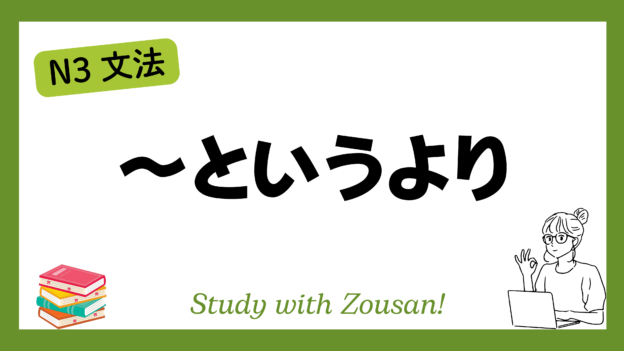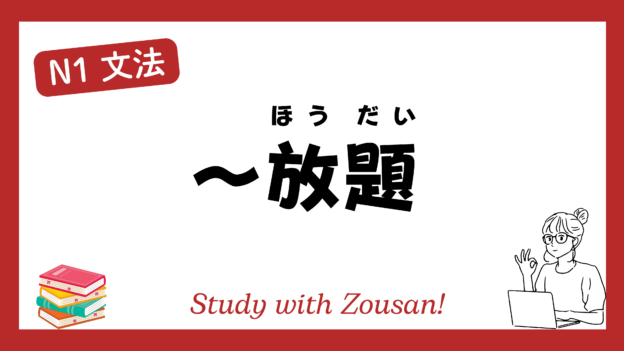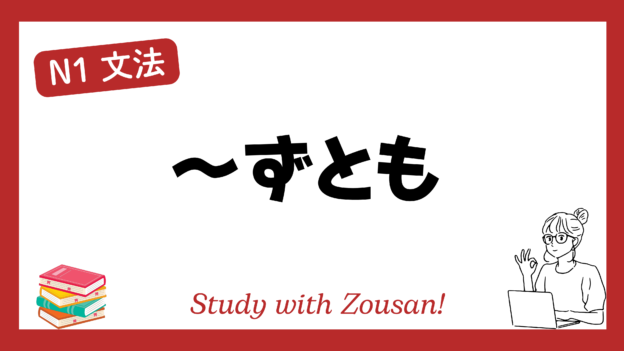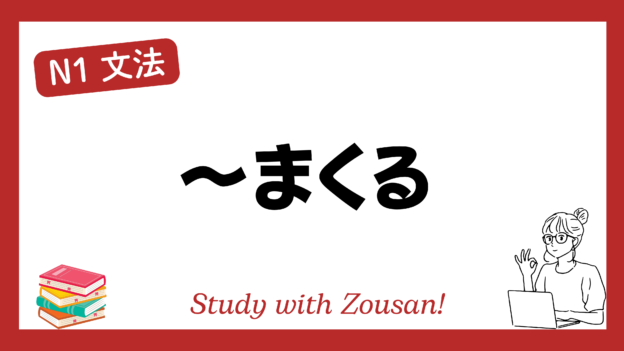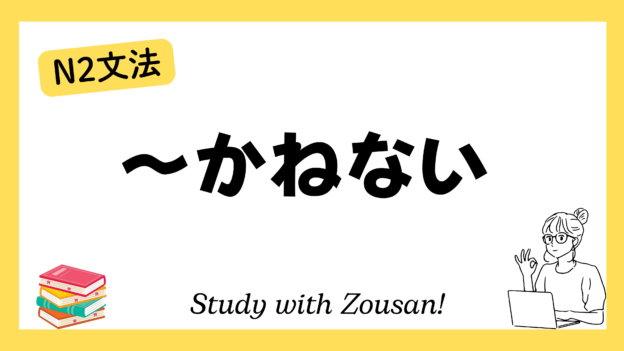N3文法:~というより
Meaning: “Rather than…”, “It’s more like…”
“~というより” is used to correct or modify a previous statement by introducing a more accurate or appropriate description. It can be translated as “rather than…” or “it’s more like…” and is often used when the speaker feels that the initial description or interpretation doesn’t fully capture the situation and wants to clarify or refine it.
※Note: This expression is commonly used to compare two ideas, with the second one being more precise or closer to the truth.
Structure:
| Verb (casual) | + というより(も/は) |
| Noun | |
| な-adjective | |
| い-adjective |
Example:
-
-
-
🌟 彼は優しいというより、むしろ甘い。
(かれ は やさしい という より、むしろ あまい。)
Rather than saying he’s kind, he’s more like soft-hearted. -
🌟 これは失敗というより、いい経験だった。
(これは しっぱい という より、いい けいけん だった。)
Rather than a failure, it was more like a good experience. -
🌟 彼女は疲れているというより、ただ眠いだけだ。
(かのじょ は つかれている という より、ただ ねむい だけ だ。)
Rather than being tired, she’s just sleepy. -
🌟 この映画は面白いというより、むしろ奇妙だ。
(この えいが は おもしろい という より、むしろ きみょう だ。)
Rather than saying this movie is interesting, it’s more like strange. -
🌟 彼は強いというより、頑固だ。
(かれ は つよい という より、がんこ だ。)
Rather than strong, he’s more stubborn. -
🌟 この天気は寒いというより、冷たい風が強い。
(この てんき は さむい という より、つめたい かぜ が つよい。)
Rather than cold, it’s more like the wind is strong and chilly. -
🌟 彼の意見はおかしいというより、独特だ。
(かれ の いけん は おかしい という より、どくとく だ。)
Rather than strange, his opinion is more unique. -
🌟 これは問題というより、むしろチャンスだ。
(これは もんだい という より、むしろ チャンス だ。)
Rather than a problem, this is more of an opportunity. -
🌟 彼女は歌が下手というより、声が小さい。
(かのじょ は うた が へた という より、こえ が ちいさい。)
Rather than saying she’s bad at singing, it’s more like her voice is just quiet. -
🌟 彼は冗談を言っているというより、本気で言っているんだ。
(かれ は じょうだん を いっている という より、ほんき で いっているん だ。)
Rather than joking, he’s more serious about what he’s saying.
-
-



